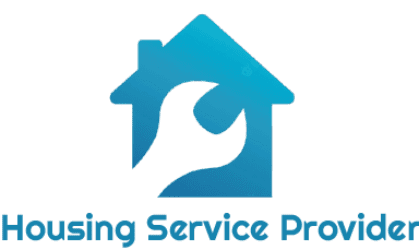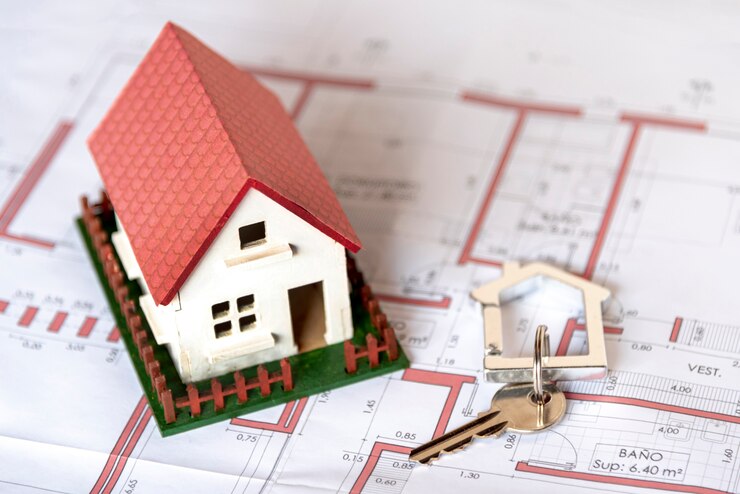Buying a house is better than renting because it offers long-term financial stability and the freedom to personalize your living space. Purchasing a home allows individuals to build equity over time and potentially profit from appreciation in the housing market.
Additionally, homeowners have the advantage of making changes to their property that suit their personal tastes and preferences, providing a sense of ownership and pride. Unlike renting, where monthly payments do not contribute to ownership, buying a house enables individuals to invest in their future and establish roots in a community.
With the potential for financial gain and the ability to create a personalized living environment, buying a house outweighs the short-term benefits of renting.

Financial Advantages Of Buying A House
Owning a house offers various financial benefits compared to renting. It’s not just a place to call home, but also a smart investment that can provide long-term financial stability. Let’s explore some of the key financial advantages of buying a house.
Tax Deductions And Benefits For Homeowners
- Mortgage interest deduction: One of the major financial advantages of owning a house is the ability to deduct mortgage interest from your taxable income. This can result in significant savings, especially during the early years of homeownership when mortgage interest payments are typically higher.
- Property tax deduction: As a homeowner, you can also deduct property taxes from your federal income tax. This deduction can help lower your overall tax liability, keeping more money in your pocket.
- Capital gains exclusion: When you sell your primary residence after owning it for at least two years, you may be eligible for a capital gains exclusion. This means that a portion of your home’s appreciation may be tax-free, allowing you to keep more of the profit from the sale.
- Tax-free home equity: Another financial advantage is the ability to withdraw funds from your home equity through a home equity loan or line of credit. The interest paid on these loans is often tax-deductible, providing additional tax benefits.
Building Equity Over Time
- Equity growth: Unlike renting, where you are simply paying for someone else’s property, homeownership allows you to build equity over time. With each mortgage payment, you are contributing towards the ownership of your home. As you pay off your mortgage and your property value increases, your equity grows.
- Leveraging equity: Building equity can provide future financial opportunities. Homeowners can leverage their equity by taking out a home equity loan or line of credit to fund renovations, education, or other expenses. This can be a cost-effective way to access additional funds when needed.
Long-Term Cost-Effectiveness Compared To Renting
- Stable monthly payments: While rent prices can rise over time, homeowners with fixed-rate mortgages enjoy stable monthly payments. This allows for better budgeting and predictability, making homeownership more cost-effective in the long run.
- Value appreciation: Historically, real estate has shown appreciation over time, resulting in potential financial gains for homeowners. By buying a house, you have the opportunity to benefit from value appreciation, increasing your overall net worth.
- Freedom from rent increases: Renters often face yearly increases, making it difficult to plan for the future. However, by owning a home, you can avoid those unexpected rental hikes and gain better control over your housing expenses.
Buying a house offers several financial advantages. From tax deductions and benefits to building equity and long-term cost-effectiveness compared to renting, homeownership can provide stability and potential financial gains. It’s a decision that not only provides a place to live but also builds a solid foundation for your financial future.
Stability And Control
Having A Place To Call Your Own
Owning a house provides a sense of stability and control that renting simply cannot match. Here are some key points to consider:
- Equity and investment: When you buy a house, you are building equity and investing in an asset that can appreciate over time. Instead of paying rent and essentially putting money into someone else’s pocket, your mortgage payments contribute towards building equity in your own property.
- Long-term stability: Renting can lead to uncertainty, as landlords may decide to sell or increase the rent at any time. However, when you own a house, you have the security of knowing that it’s your home, and you can live there for as long as you want, without worrying about sudden changes.
- Sense of belonging: Owning a house gives you a place to truly call your own. You can establish roots in a community, build relationships with neighbors, and create a sense of belonging that renting often lacks. It’s more than just a physical space – it’s a place that truly reflects your personality and style.
Freedom To Personalize And Make Home Improvements
One of the significant advantages of buying a house is the freedom to personalize and make it your own. Consider the following points:
- Decorating and renovations: As a homeowner, you have the freedom to decorate and renovate your home as you please. Whether it’s painting the walls, changing the flooring, or remodeling the kitchen, you have the power to shape your living space to suit your taste and lifestyle.
- Customization: Homeownership allows you to customize the property to meet your specific needs. You can create the perfect layout, add extra rooms, or even build an extension to accommodate a growing family or your personal preferences. This level of customization is simply not possible when renting.
- Investment in your future: Making home improvements not only enhances your living experience but can also increase the value of your property. By investing in upgrades and renovations, you’re not only personalizing your space but also investing in your future, potentially boosting the resale value when the time comes.
Avoiding Rent Increases And Landlord Restrictions
Renting often comes with the risk of increasing rental prices and the restrictions imposed by landlords. Here are some key points to consider:
- Fixed mortgage payments: When you buy a house, your mortgage payment is generally fixed over the long term, providing stability and predictability. You won’t have to worry about sudden rent increases or unexpected financial burdens.
- No landlord restrictions: As a homeowner, you have the freedom to do things that would be subject to landlord approval when renting. Whether it’s having pets, hosting gatherings, or even running a home business, you have control over how you live your life.
- Financial control: Rent payments often feel like an expense with no return, whereas a mortgage payment contributes towards building equity. With homeownership, you have more control over your financial future and can potentially benefit from the appreciation of your property over time.
Buying a house offers stability, control, and the freedom to make it your own. It provides a sense of pride, investment opportunity, and the ability to establish long-term roots in a neighborhood. With the ability to personalize your space and avoid rent increases, homeownership grants you the power to shape your living environment and build a secure future.
Sense Of Community And Belonging
Establishing Roots In A Neighborhood
Owning a house provides a sense of stability and allows you to establish deep roots in a neighborhood. Here’s why buying a house is better than renting when it comes to establishing roots in a community:
- Long-term investment: When you buy a house, you make a long-term investment in a property. This investment not only provides you with a place to live but also gives you a sense of ownership and commitment to the neighborhood.
- Feeling of permanence: Owning a house allows you to put down roots in a community and create lasting connections. You become part of the fabric of the neighborhood, contributing to its character and shaping its future.
- Pride of ownership: There’s a unique pride that comes with owning a home in a neighborhood. You take care of your property, maintain its appearance, and actively participate in the community’s growth and improvement.
Building Relationships With Neighbors
One of the significant advantages of buying a house is the opportunity to build meaningful relationships with your neighbors. Here’s why owning a house fosters better connections with those around you:
- Proximity and continuity: Living in the same house for an extended period allows you to develop close relationships with your neighbors over time. You see familiar faces and establish a sense of community that goes beyond just living side by side.
- Shared interests: Homeownership often attracts like-minded individuals who share common values and goals. This shared interest in maintaining and improving the neighborhood creates a strong bond among homeowners.
- Enhanced social interactions: When you own a house, you’re more likely to interact with your neighbors on a regular basis. This can happen during neighborhood events, community gatherings, or even just casual encounters, leading to lasting friendships and a stronger sense of belonging.
Contributing To A Stable Community
Buying a house not only benefits you personally but also contributes to the overall stability of the community. Here’s how homeownership supports and strengthens the community:
- Property value appreciation: Homeownership helps stabilize property values in the neighborhood. When homeowners invest in their properties and maintain them, it positively impacts the value of neighboring homes, creating a stable and desirable community.
- Increased civic engagement: Owning a house often leads to increased civic engagement and participation in local affairs. Homeowners have a vested interest in their community’s success and are more likely to get involved in neighborhood associations, local politics, and community initiatives.
- Sense of responsibility: Homeowners have a sense of responsibility towards their community. They take pride in their neighborhood and actively contribute to its betterment, whether it’s through volunteer efforts, supporting local businesses, or taking part in neighborhood improvement projects.
Owning a house provides a sense of community and belonging that is unmatched by the transient nature of renting. It allows you to establish deep roots, build meaningful relationships, and contribute to a stable and thriving neighborhood. So, if you have the means to buy a house, consider the long-lasting benefits it brings to both you and the community you become a part of.
Building A Strong Financial Foundation
Owning a home provides numerous advantages, particularly when it comes to building a strong financial foundation. From saving for a down payment to improving your credit score and understanding and managing debt, the path to homeownership offers a wealth of benefits.
Let’s delve into each of these key areas and explore why buying a house can be a better financial option than renting.
Saving For A Down Payment:
Saving for a down payment is a crucial aspect of the home buying process. Some key points to consider include:
- A down payment allows you to secure more favorable mortgage terms and interest rates.
- It gives you a sense of ownership and pride in your investment.
- By saving for a down payment, you can demonstrate financial discipline and responsibility to lenders.
- Your down payment amount will influence the total loan amount you need, which in turn affects your monthly mortgage payments.
Improving Credit Score:
A good credit score is essential when purchasing a home. Follow these tips to improve your credit score:
- Pay your bills on time to show a reliable payment history.
- Keep your credit utilization ratio low by not maxing out your credit cards.
- Maintain a mix of different types of credit, such as credit cards, loans, and mortgages.
- Limit the number of credit inquiries and avoid opening too many new credit accounts at once.
- Regularly review your credit report for errors and dispute any incorrect information.
Understanding And Managing Debt:
Properly understanding and managing your debt play a significant role in your financial well-being. Consider the following points:
- Reduce high-interest debt, such as credit card balances, before purchasing a home.
- Create a budget to track your income and expenses, ensuring you can comfortably afford your mortgage payments.
- Avoid taking on additional debt while preparing to buy a house.
- Prioritize paying off existing debt to improve your debt-to-income ratio.
- Seek financial advice if needed to develop a sound debt management strategy.
Buying a house provides an opportunity to build a strong financial foundation. By saving for a down payment, improving your credit score, and understanding and managing debt, you can put yourself in a favorable financial position for long-term success. So, start envisioning the future in your very own home and take that important step towards building your financial stability.
Researching And Choosing The Right Home
Finding the perfect home is an exciting yet challenging process. It requires thorough research and careful consideration to ensure you make the best decision for yourself and your future. Here are some key points to keep in mind when researching and choosing the right home:
Determining Your Budget And Affordability
- Assess your financial situation: Take a close look at your income, savings, and expenses to determine how much you can afford to spend on a house.
- Consider additional costs: Remember to factor in expenses like property taxes, insurance, maintenance, and utilities to get a realistic estimate of your monthly housing costs.
- Get pre-approved for a mortgage: This can give you a clear understanding of your budget and help you narrow down your search to homes that are within your price range.
Considering Location, Size, And Amenities
- Location: Think about the area you want to live in. Consider factors such as proximity to work, schools, amenities, and your overall lifestyle preferences.
- Size: Determine the appropriate size of the home based on your current needs and future plans. Consider factors like the number of bedrooms and bathrooms, as well as the overall square footage.
- Amenities: Identify the features and amenities that are essential to you, such as a backyard, garage, or a specific architectural style. Create a list of must-haves and nice-to-haves to guide your search.
Understanding The Housing Market And Trends
- Research the current market: Keep an eye on real estate trends, including prices, inventory levels, and interest rates. This information will help you understand market conditions and make informed decisions.
- Seek professional guidance: Consider working with a real estate agent who has expertise in the local market. They can provide valuable insights and help you navigate the home-buying process.
- Plan for the future: Consider the long-term outlook of the housing market in the area you’re interested in. Look for signs of growth and development that can positively impact your investment.
Researching and choosing the right home requires careful consideration of your budget, location preferences, and market trends. By being knowledgeable and strategic in your approach, you can find a home that meets your needs and offers long-term value. So, let’s dive into the exciting process of finding your dream home!
The Homebuying Process
Buying a house is an exciting milestone in many people’s lives. It provides a sense of stability, investment potential, and the freedom to create a home that suits your unique preferences. Although renting may seem more convenient in the short term, buying a house offers long-term benefits that far outweigh the initial challenges.
To help you understand why buying a house is better than renting, let’s delve into the key aspects of the homebuying process.
Finding A Trusted Real Estate Agent
When you decide to buy a house, one of the first steps is finding a trusted real estate agent. This professional will be your guide, assisting you throughout the homebuying journey. Here are a few crucial considerations when selecting a real estate agent:
- Local expertise: A knowledgeable agent familiar with the area can provide valuable insights about the different neighborhoods, amenities, and market conditions.
- Experience and reputation: Look for an agent with a proven track record and positive reviews. Their experience will be instrumental in navigating the complexities of the homebuying process.
- Effective communication: Strong communication skills are essential in a real estate agent. They should listen to your requirements, promptly respond to your queries, and keep you informed at every step.
- Negotiation skills: A skilled negotiator will help you secure the best deal for your dream home. Ensure that your agent is adept at negotiating on your behalf.
Getting Pre-Approved For A Mortgage
The next step on your homebuying journey is getting pre-approved for a mortgage. This process involves approaching a lender who will assess your financial situation and determine how much they are willing to lend you for your home purchase. Here’s why getting pre-approved is crucial:
- Determine your budget: Pre-approval provides a clear understanding of how much you can afford to spend on a house. This helps you narrow down your search and avoids wasting time on properties outside your budget.
- Increased bargaining power: Sellers, especially in competitive markets, often prefer buyers who have been pre-approved for a mortgage. It gives them confidence that you are a serious buyer and increases your chances of having your offer accepted.
- Smooth process: With the pre-approval in hand, the final mortgage approval process becomes more streamlined. You’ll have already submitted much of the required documentation, saving time and reducing stress.
Making An Offer And Negotiating
Once you’ve found your dream home, it’s time to make an offer and negotiate with the seller. This step can be crucial in determining the final price you pay for the property. Here are some key aspects to consider during the negotiation process:
- Market research: A trusted real estate agent can help you understand the current market conditions and assess the fair market value of the property. Armed with this knowledge, you can make an offer that aligns with the market trends.
- Contingencies: Contingencies are conditions that must be met before the sale can proceed. These can include home inspections, repairs, or obtaining favorable financing terms. Discussing and negotiating these contingencies is an important part of the offer.
- Flexibility: Negotiations involve give and take. While it’s crucial to stick to your budget, being flexible can help reach a mutually beneficial agreement with the seller. This might involve compromises on timelines, repairs, or price adjustments.
By understanding the homebuying process, including finding a trusted real estate agent, getting pre-approved for a mortgage, and negotiating effectively, you can make a confident and informed decision to buy a house. The long-term benefits and sense of fulfillment that homeownership brings underline why buying a house is better than renting.
So, start your journey today and make your dreams of owning a home a reality.
Financial Responsibility
Owning a house comes with a significant level of financial responsibility that goes beyond the mortgage payment. Let’s explore some key points to consider:
Additional Costs Beyond The Mortgage Payment
- Property taxes: As a homeowner, you are responsible for paying property taxes, which can vary depending on the location and value of your property.
- Home insurance: Protecting your investment is essential, and having homeowner’s insurance provides coverage for potential damages and liabilities.
- Homeowner association (hoa) fees: If your property is part of an hoa, there might be monthly or annual fees to cover maintenance and community amenities.
- Utilities: Unlike renting, where utilities might be included, as a homeowner, you are solely responsible for paying for your utilities, such as water, electricity, and gas.
Home Maintenance And Repairs
- Regular maintenance: Homeownership requires ongoing maintenance tasks to preserve the condition and value of your property. This includes activities like lawn care, cleaning gutters, and maintaining hvac systems.
- Unexpected repairs: It’s crucial to have a financial cushion to handle unexpected repairs, such as a leaky roof or a malfunctioning appliance. These repair costs can quickly add up, and being financially prepared is essential.
Potential For Property Value Fluctuations
- Property value appreciation: Buying a house allows you to build equity over time, especially if the property value appreciates. This can potentially lead to significant financial gains when you decide to sell.
- Property value depreciation: However, it’s important to acknowledge that property values can also fluctuate in the opposite direction. Economic conditions, neighborhood changes, or other factors may cause your property value to decline.
- Impact on resale: Understanding the potential fluctuations in property value is crucial, as it directly affects your investment and potential profitability if you plan to sell in the future.
Overall, owning a house comes with additional costs, maintenance responsibilities, and the potential for property value fluctuations. Being financially prepared and informed about these aspects is vital when deciding between buying or renting a property.
Commitment And Flexibility
Owning a house versus renting comes with its own set of advantages and disadvantages. One aspect to consider is the level of commitment and flexibility that accompanies homeownership. Let’s delve deeper into this aspect and explore why buying a house may be better than renting.
Long-Term Commitment To A Mortgage
- Financial investment: Buying a house involves a long-term commitment to paying off a mortgage, which translates into building equity over time. With each mortgage payment, you move closer to owning the property outright.
- Stability and permanence: Owning a home provides a sense of stability and permanence. It allows individuals and families to establish roots and create a sense of belonging within a community.
- Opportunity for customization: Homeowners have the freedom to customize their living space to their liking, whether it’s through renovations, interior design choices, or landscaping. This level of personalization may not be possible when renting.
Limited Flexibility For Relocation
- Constraints on moving: While owning a house offers stability, it can also limit your flexibility for relocation. Selling a home can be a time-consuming process, potentially delaying any immediate plans for moving to a new location.
- Tied to the housing market: Selling a home might depend on the state of the housing market. In a market downturn, it could take longer to find a buyer, making it harder to relocate quickly.
- Commitment to the community: Homeowners often develop a sense of belonging and forge connections within their community. Moving frequently as a renter may hinder the creation of such strong social ties.
Potential Challenges In Selling A Home
- Market fluctuations: The real estate market is subject to fluctuations, which can impact the ease and speed of selling a property. In a buyer’s market, you may need to lower your asking price or be patient until the market favors sellers.
- Costs associated with selling: Selling a home may involve various costs such as agent commissions, closing fees, and potential repairs or renovations to make the property more marketable. These expenses should be taken into account when considering homeownership.
- Uncertainty in timing: Selling a house may require careful timing, depending on personal circumstances, market conditions, and other factors. It may not always align smoothly with your plans or desired timeline.
As you weigh the pros and cons of renting versus buying a house, commitment and flexibility play a critical role in the decision-making process. While homeownership provides stability, a sense of belonging, and the opportunity for customization, it can limit the flexibility for relocation and potentially present challenges when selling.
Assessing your personal priorities and long-term goals will help guide you towards making the choice that aligns with your unique circumstances and aspirations.
Risks And Unknowns
Economic Factors Affecting The Housing Market
The housing market is influenced by several economic factors that can impact the decision to buy a house rather than rent. Here are key points to consider:
- Interest rates: Fluctuations in interest rates can significantly affect mortgage payments. When rates are low, it might be a favorable time to buy, as the monthly payments could be more affordable.
- Inflation: Over time, inflation can lead to rental price increases. Owning a house can act as a hedge against inflation since mortgage payments remain the same, while rental costs tend to rise.
- Equity building: Buying a house allows you to build equity as you pay down the mortgage. This equity can be tapped into in the future, either by selling the property or borrowing against it.
- Tax benefits: Homeownership often comes with tax advantages, such as deducting mortgage interest and property taxes. These benefits can offset some of the costs associated with owning a house.
Unforeseen Maintenance Issues Or Natural Disasters
While owning a house offers a sense of stability, there are risks associated with unforeseen maintenance and natural disasters. Consider the following:
- Home repairs: As a homeowner, you are responsible for the cost of maintenance and repairs. These expenses can arise unexpectedly and may vary in severity. It’s important to have an emergency fund to handle such situations.
- Natural disasters: Depending on the region, houses may be exposed to various natural disasters like hurricanes, earthquakes, or floods. These events can cause significant damage and require additional insurance coverage.
- Insurance coverage: Adequate insurance coverage is essential to protect your investment. Homeowner’s insurance can help cover repairs, replacement costs, or liability in case of accidents. However, insurance premiums can also add to the overall homeownership expenses.
Future Interest Rate Changes
Another challenge to consider when buying a house is the possibility of future interest rate changes. Here are some points to be aware of:
- Loan affordability: Mortgage payments are significantly affected by interest rates. When interest rates rise, the cost of borrowing increases, which may limit the amount you can afford when purchasing a house.
- Refinancing options: If interest rates drop significantly, refinancing your mortgage can be a way to lower your monthly payments. However, there are costs associated with refinancing, so it’s important to carefully consider whether it would be beneficial.
- Long-term planning: Considering the potential for interest rate fluctuations is crucial when choosing between buying and renting. Maintaining flexibility in your long-term financial plan can help navigate any changes in interest rates that may impact your mortgage payments.
When deciding between buying a house and renting, it’s essential to analyze the risks and unknowns associated with homeownership. Economic factors, unforeseen maintenance issues or natural disasters, and potential interest rate changes are all factors that should be carefully considered before making a decision.
Frequently Asked Questions For Why Is Buying A House Better Than Renting
Is Buying A House A Good Investment?
Yes, buying a house can be a good investment. Unlike renting, homeowners can build equity over time, which can increase their overall wealth. Additionally, homeowners have the option to rent out their property, providing an additional income stream. It’s important to consider factors such as the real estate market, location, and long-term financial goals before making a decision.
What Are The Advantages Of Buying A House Instead Of Renting?
Buying a house offers several advantages over renting. When you buy a house, you have the freedom to customize and personalize your space as you wish. You are also not subject to potential rent hikes or terms set by a landlord.
Furthermore, owning a home allows you to build equity and potentially benefit from tax incentives. It can also provide a sense of stability and security for you and your family.
Will Buying A House Save Me Money In The Long Run?
Buying a house can save you money in the long run. While it may require upfront costs such as a down payment and closing costs, owning a home means no more monthly rent payments. Over time, as you build equity and potentially your property appreciates, you can benefit financially.
Additionally, homeownership often provides tax advantages that can further contribute to savings.
Conclusion
Purchasing a house offers numerous advantages over renting. Not only does buying a house provide stability and security, but it also builds equity and offers potential financial benefits. Owning a home allows individuals to personalize their space and create a sense of belonging.
Additionally, homeowners have the freedom to make improvements and modifications according to their preferences. While renting may provide flexibility and convenience, it does not offer the same long-term wealth accumulation opportunities that come with homeownership. Furthermore, the housing market consistently appreciates over time, making homeownership a wise investment.
Despite the initial costs and responsibilities associated with owning a home, the benefits far outweigh the drawbacks. Therefore, if you are looking to secure your future and establish a place to call your own, buying a house is a financially smart decision.




